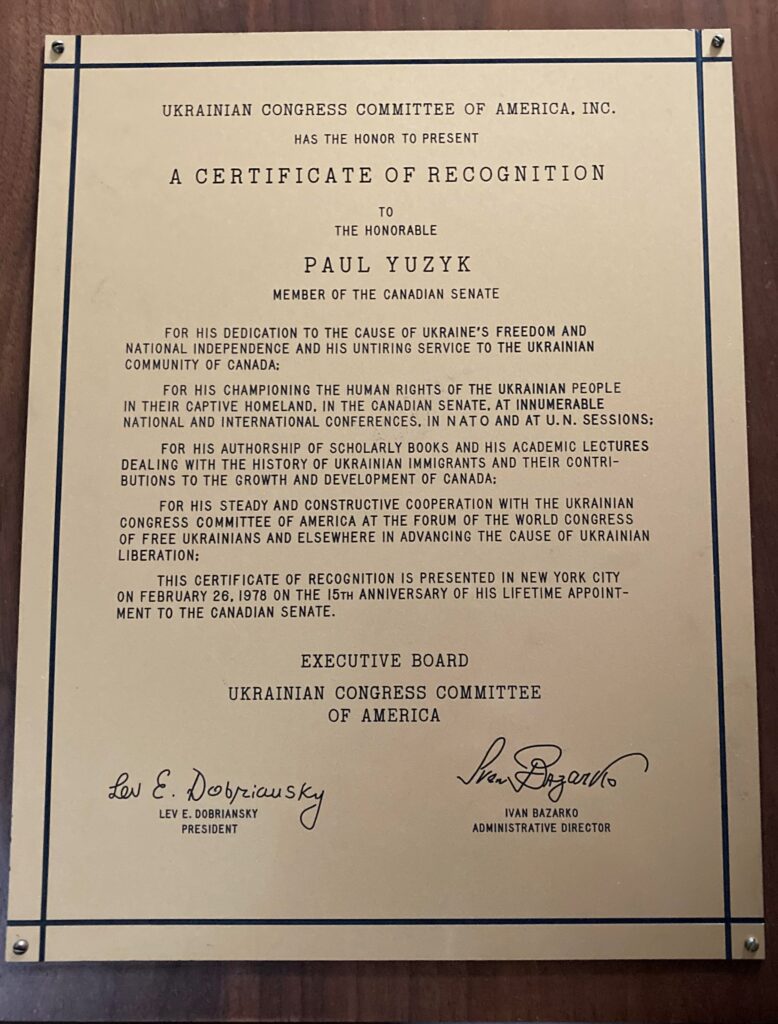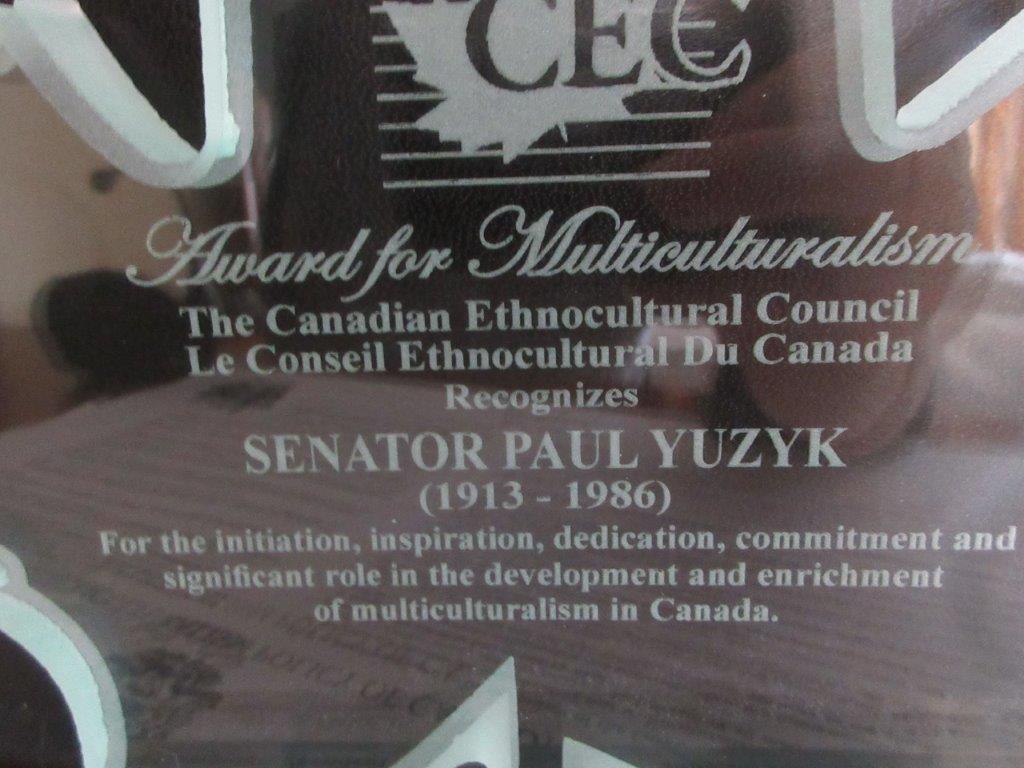- Early Life in Saskatchewan
- Prairie Teacher
- Academic Career
- Senator on a Mission
- Public Life and Contributions
- Service to the Ukrainian Community
Early Life in Saskatchewan
Paul Yuzyk’s parents, Martin Yuzyk and Katherine Chaban, were part of the first large wave of Ukrainian immigration from Galicia to Canada between 1896 -1914. Martin arrived in 1904 and Katherine in 1911. They met and married in Winnipeg in 1912 and then moved to Estevan, Saskatchewan where Martin found work in the coalmines. Paul was born on June 24, 1913 in Pinto, near Estevan. Martin decided to leave mining after he narrowly escaped the collapse of the mine. In 1920, he moved the family to Craven (northwest of Regina) where he managed a barbershop. They moved for the last time to Saskatoon, in 1923, where there were better economic opportunities and a growing Ukrainian population.
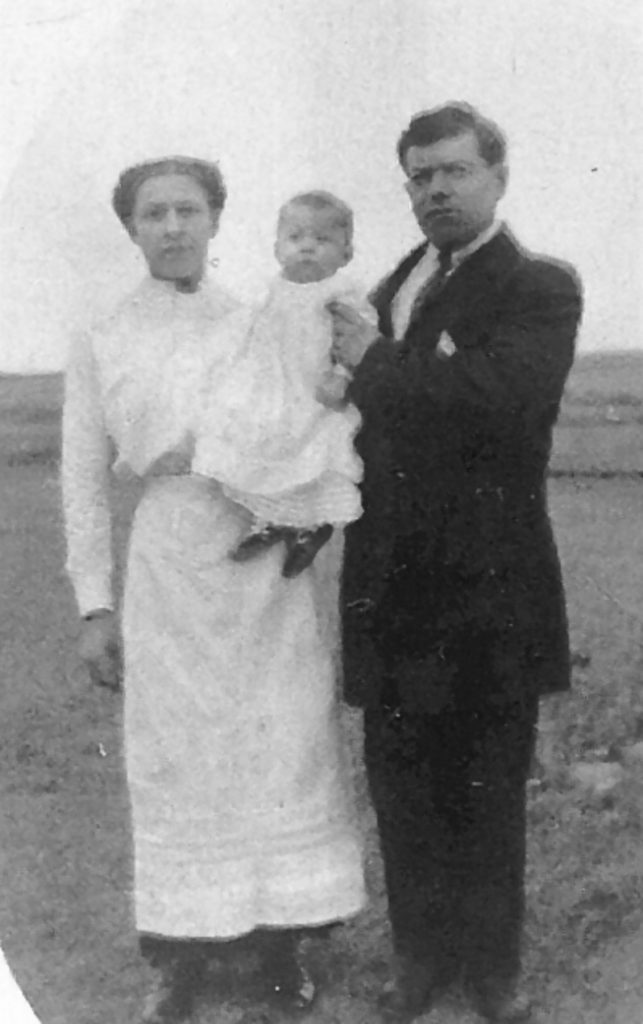
When they arrived in Saskatoon, the Yuzyk family consisted of Paul (b:1913), the eldest, brother John (b:1914) and brother Michael (b:1920). Sister Mary-Anne was born in Saskatoon in 1924. Paul’s father found employment with the municipal water and sewage works and with time bought land and built a small house in the ethnically diverse west end of Saskatoon. They participated in the city’s rich Ukrainian “organizational life” and attended the Ukrainian Greek Catholic Church. He and his brothers were enrolled in public schools and encouraged “to do well in school” by their mother.
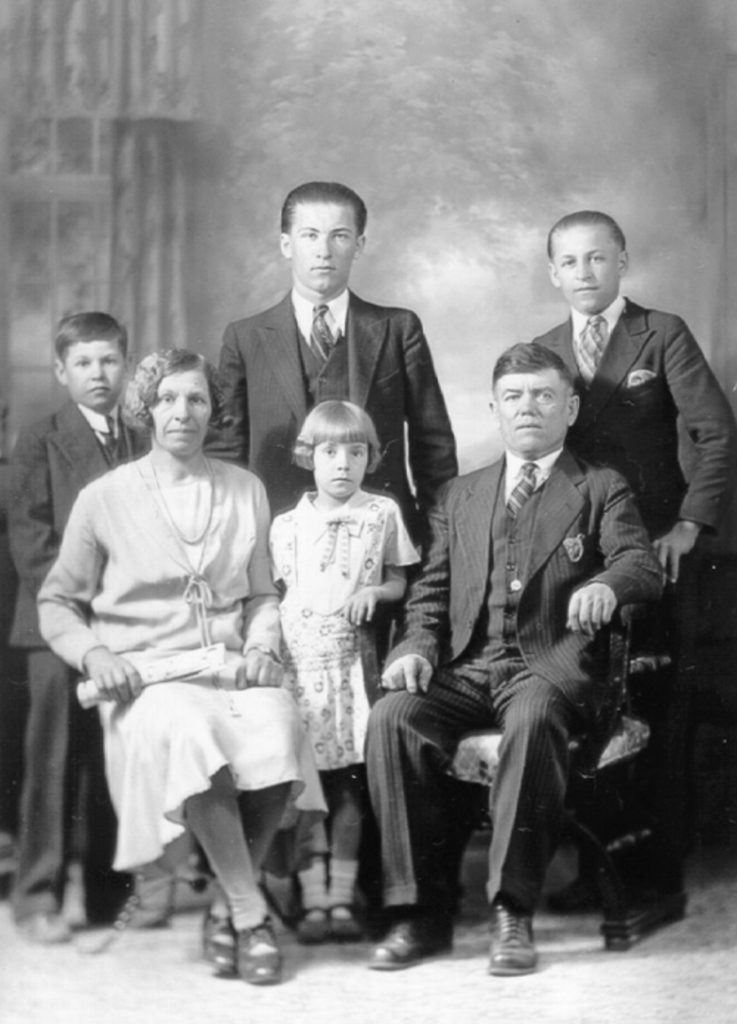
Young Paul attended Bedford Road Collegiate from 1928-32, striving to become a scholar and athlete. He participated in the hockey, basketball, rugby, softball and sprinting teams and learned to play the violin. He did well academically, receiving 100% on the final exam in Grade 11 mathematics and physics and graduated from grade 12 with honours.
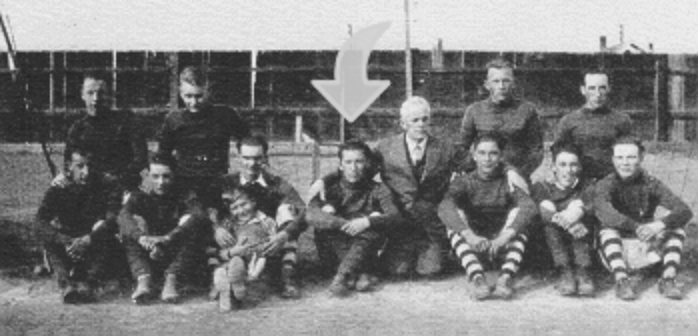
1932-1933
Prairie Teacher
Keen to earn a living and buy a car, Paul enrolled in the Saskatoon Normal (Teacher’s) School from 1932-33 and graduated with distinction. In the 1930’s, Saskatchewan was in an economic depression and anti-immigrant sentiment was prevalent. Paul soon experienced this discrimination first hand when all 77 of his applications for teaching positions, in the English speaking communities, were rejected. When he followed-up with school board officials, he was told he was a “foreigner” and “foreigners couldn’t be trusted teaching our children.”
“They really did things like that. We were being called bohunks and foreigners. The result was to strengthen my Ukrainianism. I said to myself that if they called me a foreigner when I had been born in Canada, it meant Canada needed some changing.”
This experience strengthened his resolve to build a better Canada that later became the title of one of his books. In For A Better Canada, he stated “Like many others I was fully aware that dividing our citizens into categories of first and second class was harmful. As a public school teacher, later as a university professor and historian, I devoted my efforts towards promoting better relations among all groups and a new concept of an all-inclusive Canadian identity.”
Fortunately, Paul found a teaching position outside of Saskatoon in the largely Ukrainian farming community of Hafford. From 1933-42, he taught grades one to ten in the one room Marlin School. He was then promoted to principal and taught grades seven to twelve in the two room Craigmore School. He also taught after-school lessons in Ukrainian, directed a youth choir and orchestra and was active in the cultural life of the community.
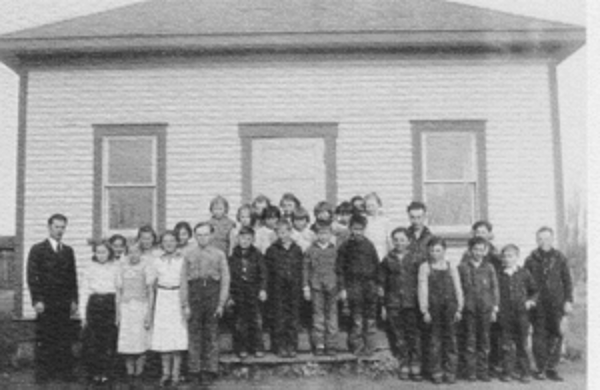
Hafford, Saskatchewan, 1934
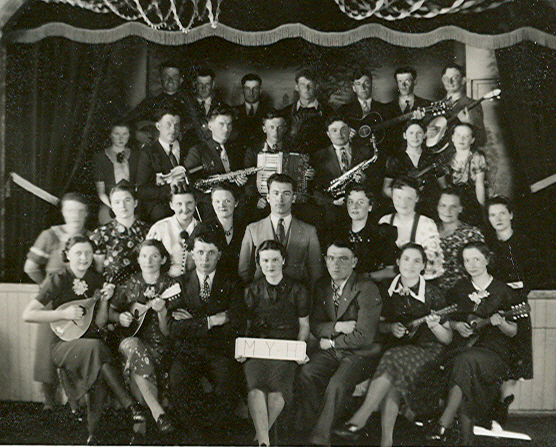
Redberry, Saskatchewan
While teaching in Hafford, Paul met the charming and attractive Mary Bahniuk, whose family farmed in the area. Mary was Secretary of the Ukrainian National Youth Federation Branch in Redberry, which Paul helped to form, and a telephone operator. They married on July 12, 1941 and lived with Mary’s parents on the farm. He served briefly in the Canadian Army, from 1942-43, training Non Commissioned Officers until he was discharged for medical reasons. He then decided to return to Saskatoon, with his wife and daughter, to attend university on a full-time basis.
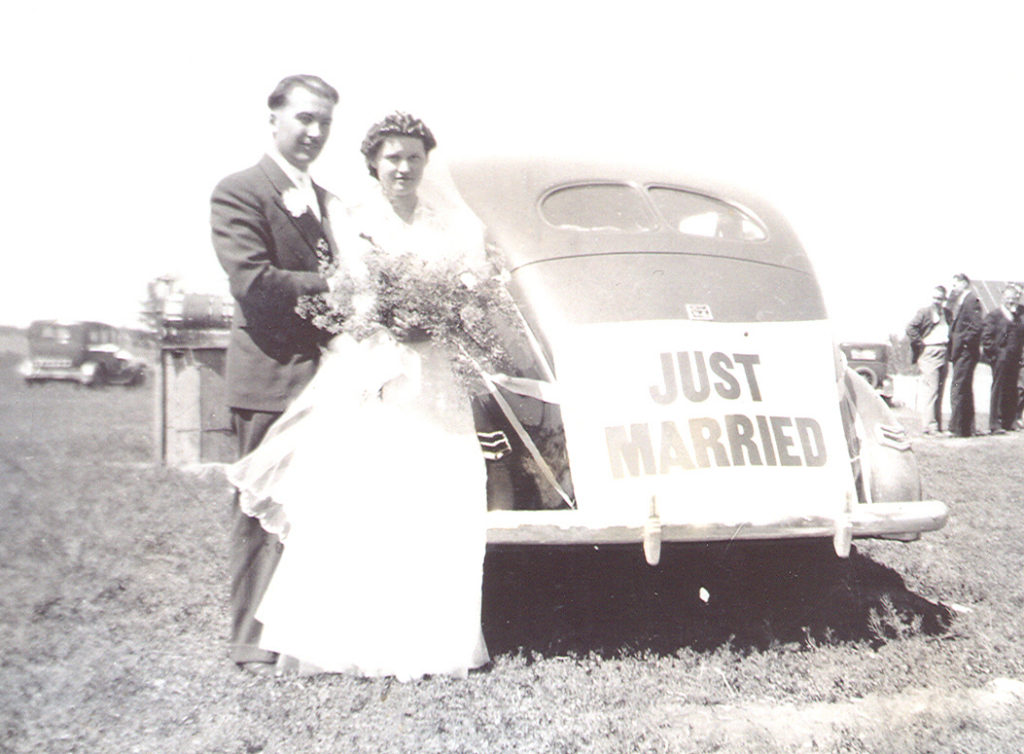
Academic Career
While still a teacher, Paul had enrolled, in 1941, in a Bachelor of Arts (BA) program in Mathematics and Physics (minor in History) at the University of Saskatchewan. He returned to Saskatoon, in 1943, to study on a full-time basis and graduated in 1945 hoping to pursue a career in atomic energy. However, Professor George Simpson, head of the Department of Slavic Studies, steered him into the field of history encouraging him to write about Ukrainian Canadians, who were one of Canada’s largest ethnic groups, yet little known to Canadians. Under Simpson’s direction, Paul completed a BA Honours in History in 1947 and a Master’s in History in 1948. His thesis was the first study on “The Ukrainian (Greek) Catholic Church of Canada.”
With a fellowship from the Manitoba Historical Society in 1948, he then wrote The Ukrainians in Manitoba: A Social History, published in 1953. This was the first history on the contributions of Ukrainian Canadians to the development of Manitoba and Canada. In the chapter called the Process of Canadianization, Paul outlined his early vision of a multicultural Canada. He argued against forced assimilation in favour of a gradual integration of new Canadians into Canadian society – unity in diversity. He referred to Canada as a mosaic of peoples out of which “the best elements of the diverse cultures in Canada” would be moulded into a dynamic nation.
In 1949, he entered into a doctoral program in history at the University of Minnesota completing his course work in 1951. His Ph.D. thesis in 1958 on “The Ukrainian Greek Orthodox Church of Canada 1918-1951” was another groundbreaking work on Ukrainian religious life in Canada. It was published in 1981.
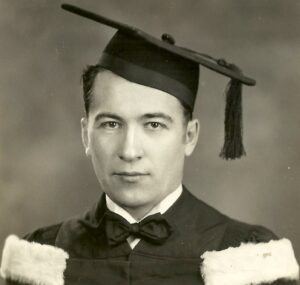
Paul’s academic career began in 1951 with his appointment to the University of Manitoba as Assistant Professor of Slavic Studies and History and then from 1958-63 as Associate Professor of History and Slavic Studies. During his tenure at the University of Manitoba, he co-authored The Ukrainian Reader with Honore Ewach, a textbook used in public and high schools in the western provinces. He served on the executive of the Manitoba Historical Society from 1952-63, including President, and was Chairman of its Ethnic Group Studies sponsoring histories on Manitoba’s Mennonites, Poles, Jews, Icelanders and Hutterites. He also founded the Canadian Association of Slavists in 1954 and later served as President, 1963-64. See link to the Manitoba Historical Society/Memorable Manitobans. See link to National Film Board film, Christmas Comes Twice, 1956 (5 min) showing Paul teaching a brief history of Rus (Ukraine) to students at the Ukrainian Cultural and Education Centre in Winnipeg and welcoming Ukrainian newcomers.
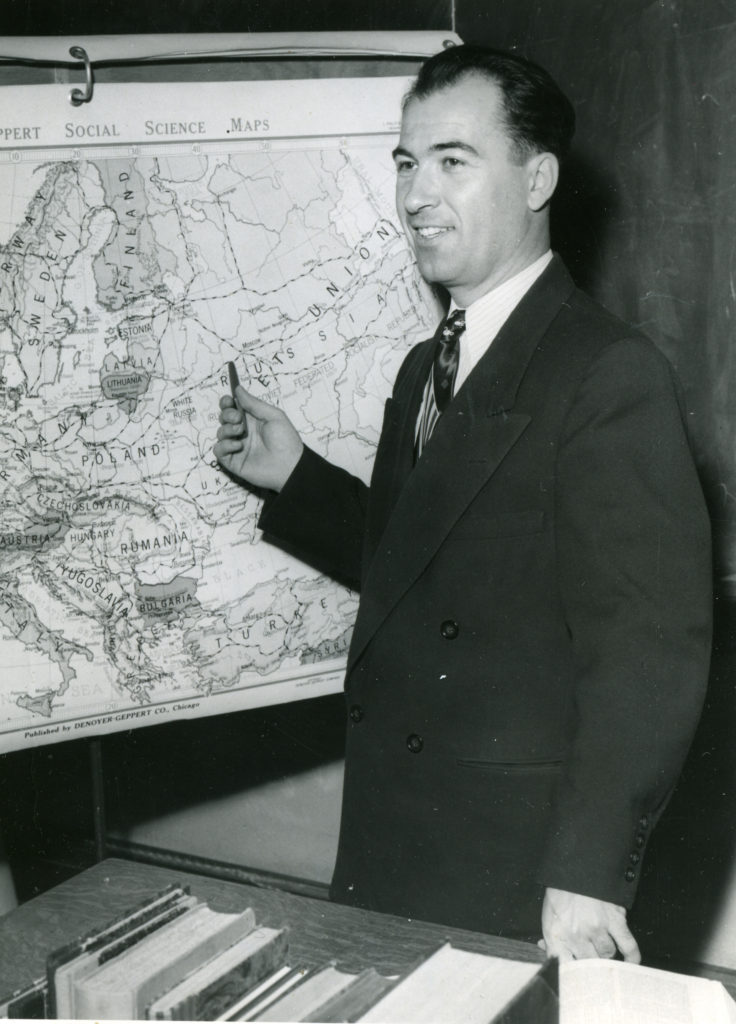
1951 – 1963
Outside of academia, Paul was a sought after speaker on the rise of his “Third Element” model, speaking to numerous service clubs and community organizations. He also served on the Boards of the Canadian Centenary Council, 1956-67, the Winnipeg Symphony Orchestra, 1962-68 and was active in Progressive Conservative Party politics and elections in Manitoba.
Paul continued to teach after his appointment to the Senate in 1963 as full Professor on a part-time basis at the University of Ottawa from 1966-1978. There he taught courses on Central and Eastern Europe, Russian and Soviet History and Canadian-Soviet Relations. He became Director of a seven-year major research project culminating in the publication in 1980 of an 840-page volume, A Statistical Compendium on the Ukrainians in Canada 1891-1976 and was a Co-Editor with Dr. William Darcovich.
Senator on a Mission
Paul was appointed to the Senate of Canada, on February 4, 1963, by the Right Hon. John Diefenbaker. He was 50 years of age (youngest appointed Senator) and a recognized author, historian, community leader and spokesperson for Ukrainian Canadians and other members of “The Third Element.” According to historian, Ken Coates, author of Manitoba, The Province and the People, 1999, Paul’s appointment came as “no surprise.” If another Ukrainian was to be nominated to replace Senator William Wall, “it had to be Paul Yuzyk, long recognized as the chief researcher of the Ukrainian influence in Canada.” He had known John Diefenbaker since the 1930s and respected his human rights work at NATO and the United Nations. Paul said the Prime Minister “expected me to defend the just rights of ethnic groups.” This became his mission in the Senate, starting with multiculturalism.
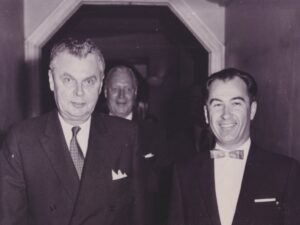

Moving Multiculturalism from Idea to Official Recognition
In July of 1963, Prime Minister Lester Pearson established the Royal Commission on Bilingualism and Biculturalism (B & B Commission). Its mandate was to “inquire into and report upon the existing state of bilingualism and biculturalism in Canada and to recommend what steps should be taken to develop the Canadian Confederation on the basis of an equal partnership between the two founding races, taking into account the contribution made by the other ethnic groups to the cultural enrichment of Canada, and the measures that should be taken to safeguard that contribution.”
The new Senator regarded the “taking into account of the contributions of other ethnic groups” as an “after thought” that relegated one third of the Canadian population to second-class citizenship. In his Maiden Speech in the Senate on March 4, 1964 called Canada: A Multicultural Nation, he challenged the premise of the B & B Commission that Canada was bilingual and bicultural, and put forth his own vision of a multicultural Canada.
Using history and statistics, he argued that Canada was never bicultural saying the Indigenous peoples were here before the British and French, the British group was itself multicultural consisting of the English, Irish, Scots and Welsh, and with the settling of other groups, comprising one third of the population, Canada had become multicultural in fact. He demonstrated how the demographic make-up of Canada had changed since Confederation due to large-scale immigration from Europe and other countries. He proposed an all-inclusive Canadian identity to reflect this new reality.
His Maiden Speech was the first exposition of multiculturalism and call for official government recognition of multiculturalism in Canada’s Parliament. He ended his speech confidently with a prediction that multiculturalism would become a model for other nations of the world dealing with similar immigration and integration issues and “would be Canada’s contribution to the world.” The speech was re-printed, and used by Ukrainian and other ethnic groups appearing before the B & B Commission and at conferences. To read the entire Maiden Speech, see link. Paul also challenged one of the Commissioners, J.B. Rudnytskyj, to a public debate on multiculturalism arguing his views were “contradictory to the reality of the present situation and to Canada’s proposed official languages act.” See link.
From the delivery of his Maiden Speech in 1964, until the official adoption of a multicultural policy in 1971, Paul became a tireless crusader promoting and building support for multiculturalism across Canada. His ability to mobilize key cultural and religious groups, academics, Canadian leaders and politicians behind this new concept culminated in the Thinkers’ Conference on Canadian Cultural Rights, in Toronto, in 1968. It was the first conference of major ethnic groups in Canada and critical to the success of Paul’s campaign.
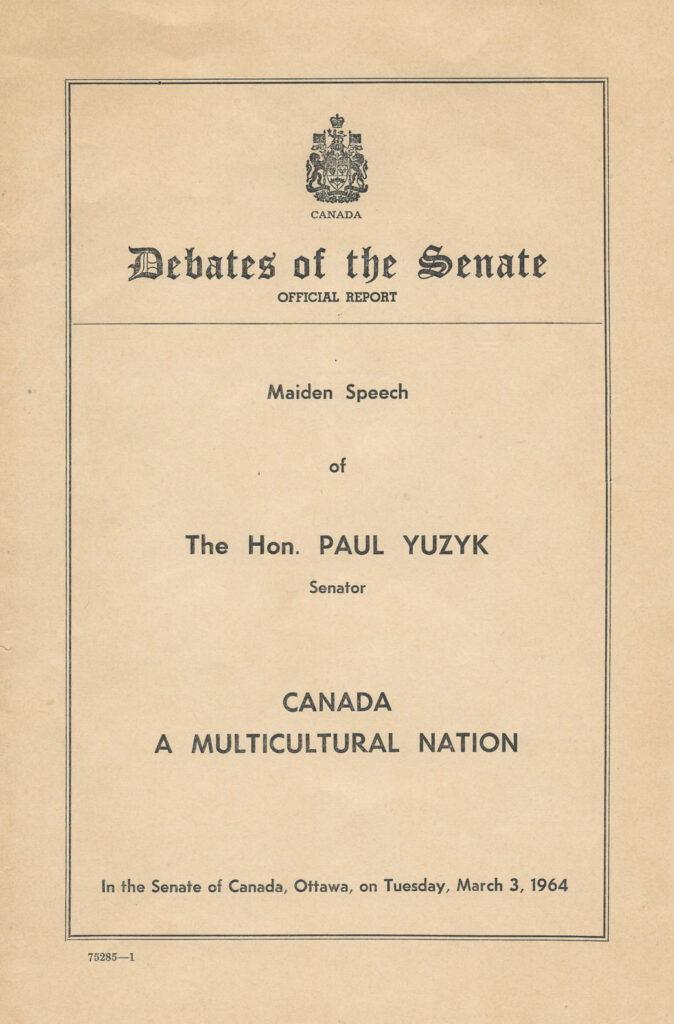
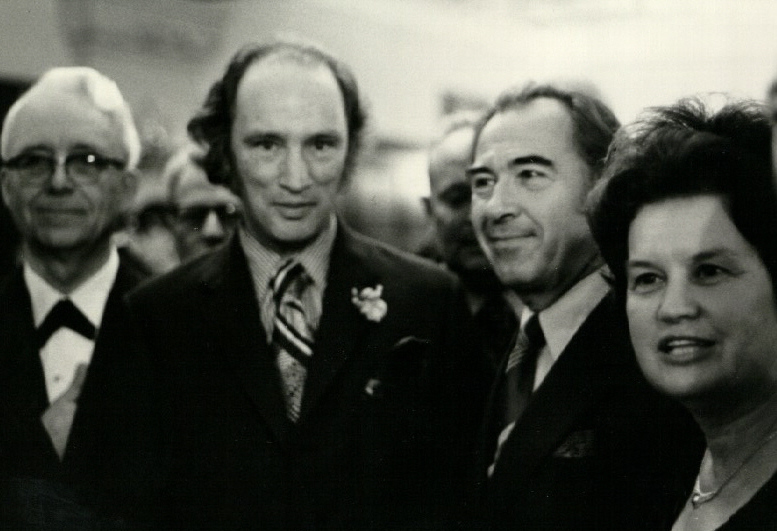
Winnipeg, 1971
The main sponsors of the Thinkers’ Conference were the Secretary of State, the Senate Committee of Patrons, the Government of Ontario, the Canadian Council of Christians and Jews and the Canadian Folk Arts Council. Representatives from fifteen key ethnic groups were present. Key speakers included Gérard Pelletier, Secretary of State, Claude Ryan, Editor of Le Devoir, William Davis, Ontario Minister of Education and Jason Robarts, Premier of Ontario. Discussions centred on the importance of Canada’s minority cultures to Canadian society, particularly Canada’s multicultural identity and heritage. Resolutions called for official government recognition and implementation of multiculturalism. Prime Minister Trudeau and other key parliamentarians received a copy of the conference proceedings.
Paul’s crusade also involved persuading provincial premiers to adopt their own provincial multicultural policies and to support the teaching of “other” languages and subjects in public schools and universities where there were sufficient numbers. Paul’s lobby by members of “The Third Force” influenced Prime Minister Trudeau’s decision, on October 8, 1971, to announce an official policy of multiculturalism within a bilingual framework. The Joint Parliamentary Committee on the Constitution of Canada in 1972, of which Paul was a member, also endorsed official multiculturalism.
Following Trudeau’s announcement, Paul continued to work with Liberal and Conservative governments to ensure the implementation of multiculturalism through a separate ministry for multiculturalism, government programs, funding and entrenchment in Canada’s Constitution in 1982. Paul’s legacy in defining, promoting and implementing the concept of multiculturalism continues to be recognized by Conservative and Liberal governments. For more info on Paul’s legacy, see on this website, the booklet, Father of Multiculturalism.
Defender of Human Rights and Freedoms
In the Senate, Paul was also known for his advocacy of human rights in Canada and internationally. From 1963 -1986, he was a respected monitor of human rights while serving on parliamentary delegations to the United Nations (UN), the North Atlantic Assembly (NAA), the North Atlantic Treaty Organization (NATO), and the Conference on Security and Cooperation (CSCE). From 1977-81, he was elected Rapporteur of the NATO’s Sub-Committee on the Free Flow of Information and People. From there, he monitored the human rights provisions of the Helsinki Accords signed in 1975 between the Soviet Union and the 35 member countries of NATO and the Warsaw Pact. In parliamentary reports and speeches, Paul often denounced the Soviet Union’s open violation of the Helsinki Accords sighting persecution of religious groups, including the Jews, and the imprisonment of intellectuals.
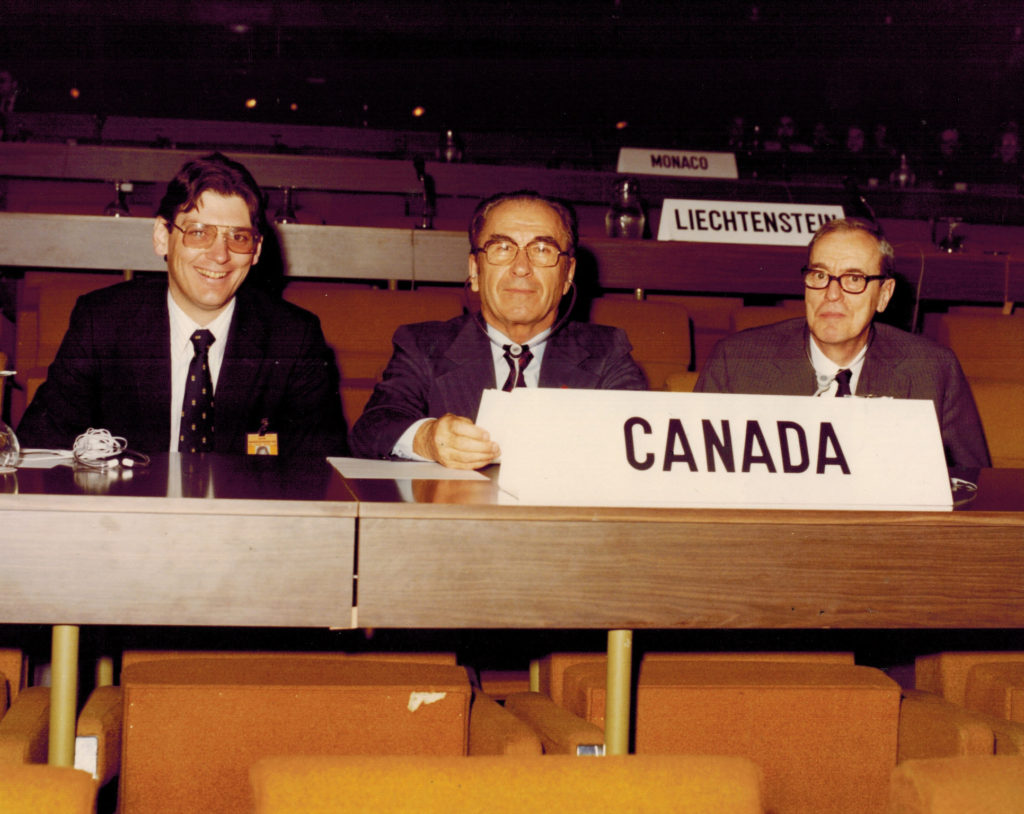
He also worked closely with Amnesty International and the World Congress of Free Ukrainians (WCFU). : “See Paul being interviewed (in Ukrainian) about the banquet he organized on Oct 31, 1973 on Parliament Hill for representatives of the WCFU and Parliamentarians.” As Chair of the WCFU’s Human Rights Committee, from 1967-85, he was a strong defender of the rights of dissidents incarcerated in Ukraine and other Soviet Republics. He wrote letters on their behalf to world leaders appealing for their release from jails and labour camps. He was a regular speaker at protests against these violations. Due to pressure from western human rights groups, the Soviet government eventually released some of the dissidents. Paul met a number of the released Ukrainian dissidents such as Valentyn Moroz and Leonid Plyushch, in his Senate office, and introduced them to other parliamentarians.
He also brought attention to the plight of dissidents incarcerated in the Baltic States. He worked with Latvian, Estonian and Lithuanian organizations in Canada to organize Baltic Evening on Parliament Hill from 1973-83. At this event, representatives of the Baltic communities shared their cultural traditions with Canadian parliamentarians as well as their concerns about Soviet human rights abuses and freedom for their homelands.
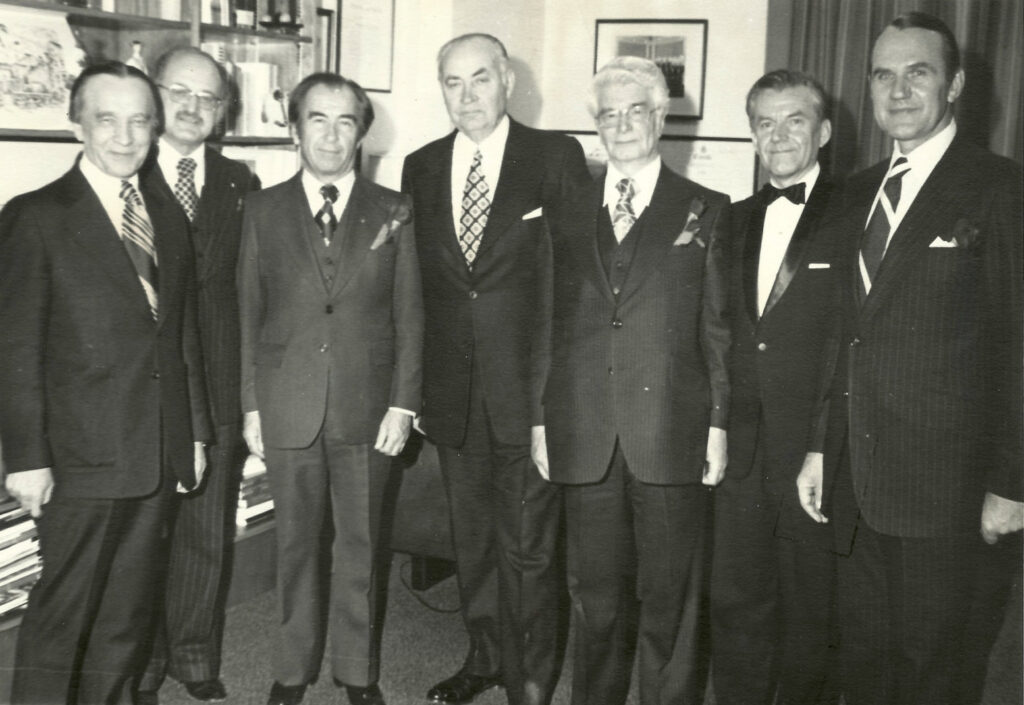
Because of his work on the International and Canadian Human Rights Commissions, Paul was denied a visa, in 1975, by the Soviet Embassy in Ottawa, to travel to Ukraine and the Soviet Union as part of a Canadian parliamentary group. Born in Canada, he never achieved his dream of visiting Ukraine. For more information on his human rights advocacy, see speeches on this topic in his book For A Better Canada.
Public Life and Contributions
Paul was a respected teacher, professor, author, historian, human rights advocate and parliamentarian with a broad base of support in academic, political and ethno cultural communities.
He is best remembered as a visionary who developed and popularized the concept of Canada as a multicultural nation, as outlined in his Maiden Speech in the Senate in 1964. He was also a charismatic leader who used his speaking and organizational skills to rally national support for official government recognition of multiculturalism. Looking back in a Senate Speech on Nov. 21, 1984, called the Evolution of Multiculturalism, Paul said that his Maiden Speech was a “voice in the wilderness” and, by the 1980s, multiculturalism had become more main stream. By 1985, he was pleased to see that Australia and other members of the British Commonwealth were observing Canada’s multicultural model.
Paul’s multiculturalism legacy continues to be recognized in government, political, academic and ethnic circles. Under the Conservative government, the Hon. Jason Kenney, Minister of Multiculturalism, created in 2009, the annual Paul Yuzyk Award for Multiculturalism defining Paul’s role as “the Father of Multiculturalism” and instrumental in the development of an all-inclusive Canadian identity that other countries look to as a model. Under the Liberal government, the Honourable Melanie Joly, Minister of Canadian Heritage and Minister responsible for Multiculturalism, launched in 2018, The Paul Yuzyk Youth Initiative for Multiculturalism, to honour Paul’s legacy by inspiring young leaders to continue advancing cultural understanding and inclusion in communities across Canada. His contributions were also acknowledged in newspaper articles during Canada 150 celebrations, and he continues to be recognized in university courses and publications on multiculturalism. See link to Canada 150 article.
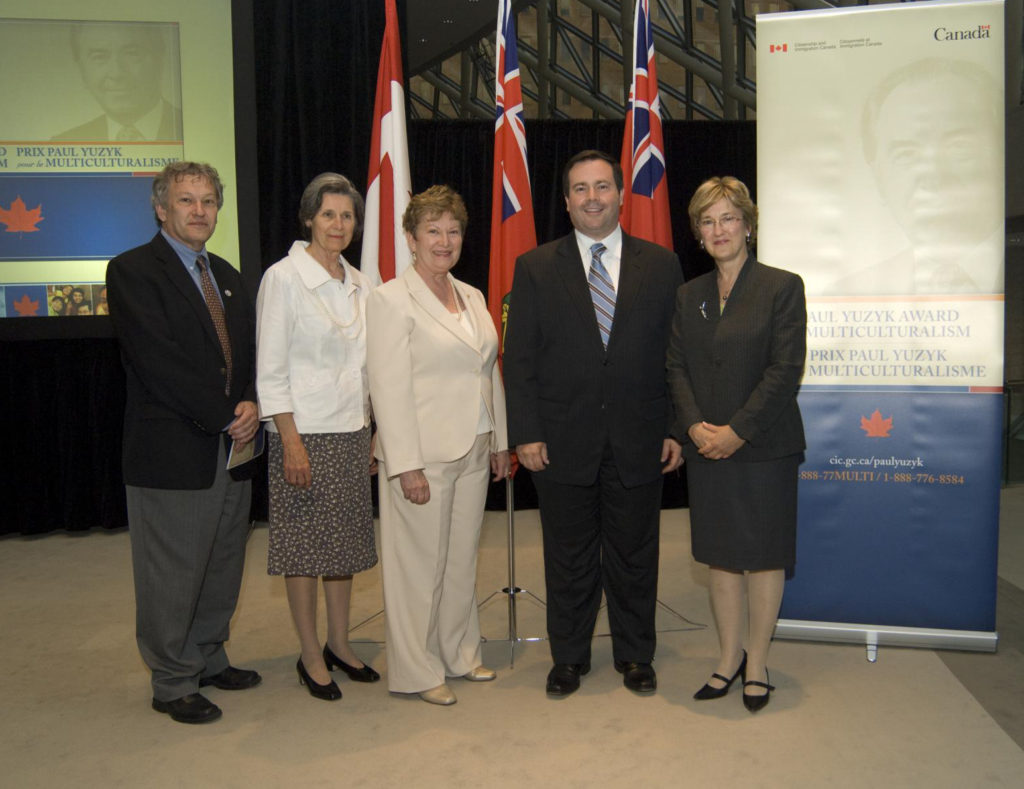
During his 23 years of public service in the Senate, he served on numerous Parliamentary and Senate committees and participated in some of the country’s important discussions on the national anthem and new bilingual lyrics for O’Canada, new Canadian flag, new Constitution of Canada, immigration policy, youth, northern pipeline, foreign affairs, abolition of the death penalty and national defence. It is fitting that the last parliamentary committee Paul served on was as Deputy Chair of the Special Senate Committee on Youth, 1984-86, starting and ending his life committed to youth issues.

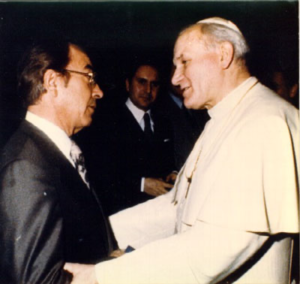
As a Senator, he was positive, outgoing and generous with his time whether lending a hand, endorsing a cause or speaking at an event. His Senate office was a “hub” for community activity and accessible to all who sought his help and support. Leon Kossar, Executive Director of the Canadian Folk Arts Council, said of Paul at a banquet honouring his 10th anniversary in the Senate, in Toronto in 1973, that he earned the title of “Senator for all the People.”
Recognition
Certificates/Honorary Memberships: Honorary membership for his leadership and patriotic service to Canada by establishing multiculturalism as the foundation of the Canadian Nation, German Canadian Business and Professional Association of Ottawa (1972); Grateful recognition of his service to the cause of human rights and justice, The Baltic Federation of Canada (1978); Certificate of Recognition on the15th anniversary of his appointment to the Canadian Senate, Ukrainian Congress Committee of America, New York (1978); Honorary Life membership for outstanding contributions to scholarship, to political life and to the Slavic community of Canada, The Canadian Association of Slavists (1982);
Keys: to the Cities of Detroit, Buffalo and Rochester U.S.A;
Medals: the Canadian Centennial Medal (1967), Manitoba Centennial Medal (1970), City of Sudbury Gold Medal 1972;
Honorary Degrees: Doctor of Laws, University of Saskatchewan, presented by former PM John Diefenbaker (1977); Honorary Doctorate (Honoris Causa), Ukrainian FreeUniversity, Munich, Germany (1982);
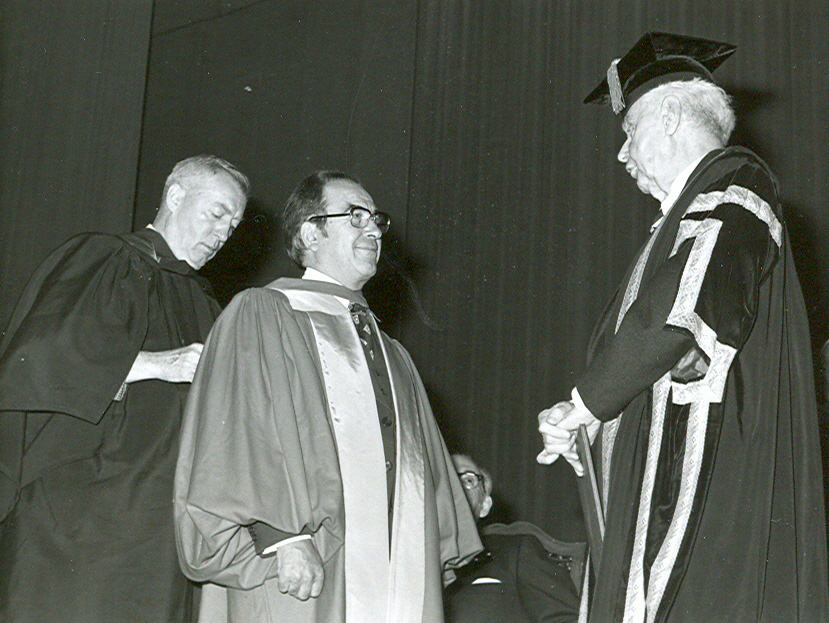
Papal: the Grand Cross of Knights of Malta and Knight-Commander of the Order of St. Gregory the Great (1983).
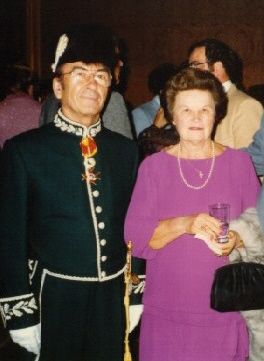
Ottawa, 1983
Posthumous recognition:
Scholarship: Annual Senator Paul Yuzyk Scholarship, Canada-Ukraine Parliamentary Program, sponsored by the Chair of Ukrainian Studies Foundation (since 1991);
Awards: St. Volodymyr Medal Award for outstanding contribution to the cause of minority rights, individual freedoms and national liberty, World Congress of Free Ukrainians, Toronto, ON (1989); Nation Builders Award, Ukrainian Canadian Congress –Saskatchewan Provincial Council, Saskatoon, SK (2003); Award for Multiculturalism for the initiation, inspiration, dedication, commitment and significant role in the development and enrichment of multiculturalism in Canada, Canadian EthnoculturalCouncil in collaboration with the Canadian Ethnic Media Association, Toronto, ON(2017).
Service to the Ukrainian Community
Paul was immensely proud of his Ukrainian Canadian heritage. As a teacher, academic, writer and parliamentarian, he actively served and participated in the cultural, religious and organizational life of the Ukrainian community in Canada.
He started out as a youth organizer in Saskatoon’s Ukrainian community. In 1934, Paul and a handful of youth, founded the Ukrainian National Youth Federation (UNYF), a youth wing of the Ukrainian National Federation (UNF). Paul was elected its first national President from 1934-35 and re-elected in 1936-37, 1941-42 and 1945-46. As President, he toured the country, established many branches and gave public speeches on topics such as nationalism versus communism and current youth problems. At times, he required police protection in larger eastern urban centres due to violent opposition from the Communists. By World War 11, UNYF had become a dynamic organization with its own Ukrainian Flying School in Oshawa. Many of its graduates joined the Royal Canadian Air Force during the war. By 1948, it reached its peak with 61 branches in Canada. For more information on UNYF, see Paul’s article UNYF: a look back and a look forward and his address The Lasting Value of an Organization.
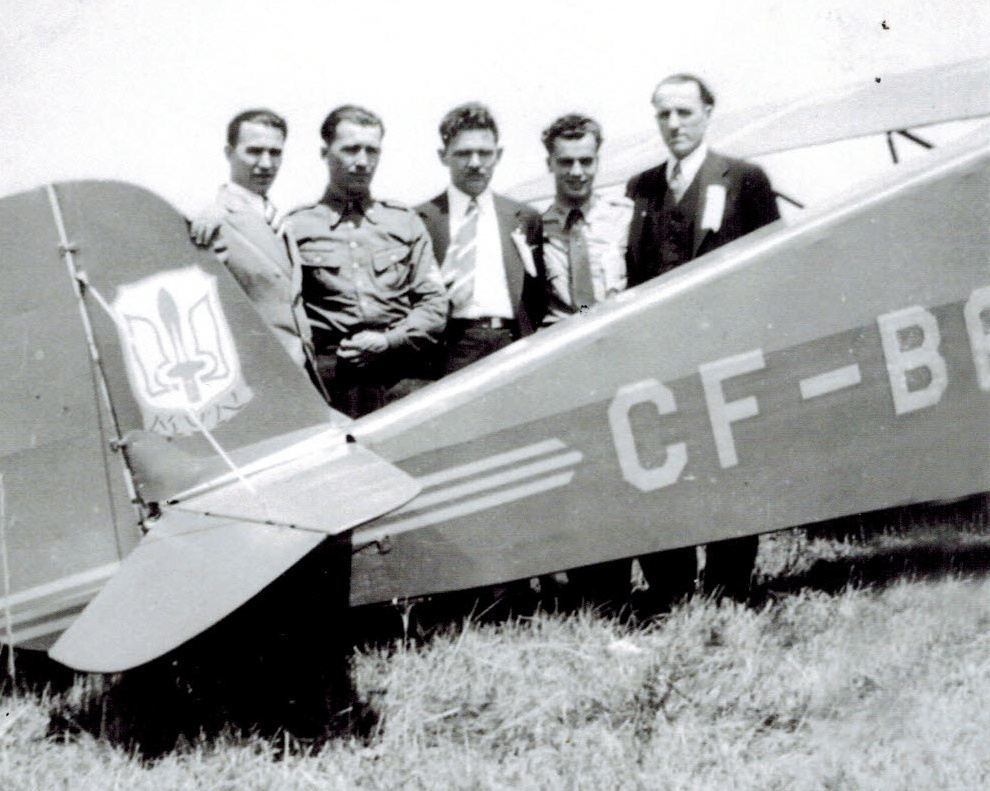
Paul credited his UNYF experience with shaping his ideology (UNYF Seven Beliefs) and future Canadian leadership. For his leadership role in the UNYF, the UNYF and UNF launched the Paul Yuzyk Institute for Youth Leadership in 2009 to encourage youth participation and leadership in community organizations. See link to Paul Yuzyk Institute for Youth Leadership.
Other key organizations in which Paul played a leading role include:
- A founder of the Ukrainian Canadian University Students’ Union, Winnipeg, 1953;
- National Treasurer, Ukrainian Canadian Committee (now Congress), Winnipeg, 1952-1955;
- President, Ukrainian Cultural and Educational Centre, Winnipeg, 1955-71;
- First Chairman, Human Rights Commission and later member of the Presidium of the World Federation of Free Ukrainians, New York, 1967-86;
- Vice-President, Ukrainian Free Academy of Sciences of Canada, 1953-68;
- Vice-President, Ukrainian Canadian Foundation of Taras Shevchenko, Winnipeg, 1964-
- Vice-President, Ukrainian National Association (UNA) Inc, New Jersey, 1970-74 and Supreme Director for Canada 1974-86; supporting the publication of Ukraine: A Concise Encyclopedia, University of Toronto Press, 1971;
- Honourary Chairman, Ukraine Millennium Foundation, 1983-86.
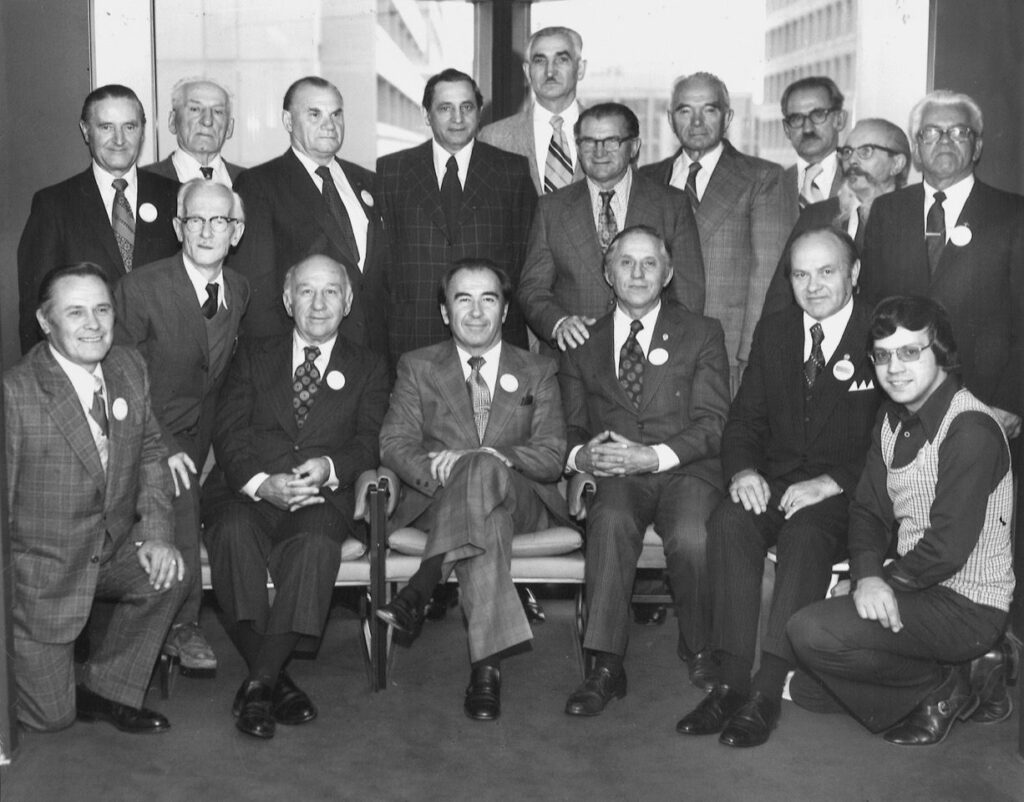
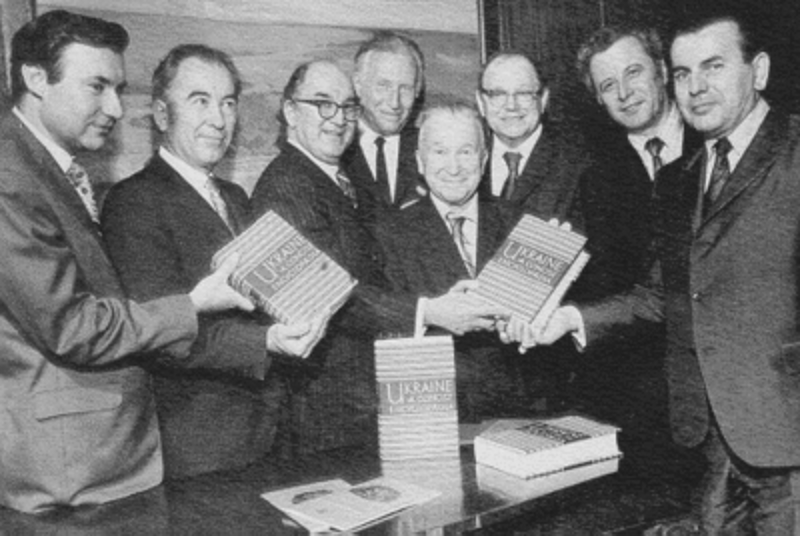
From left to right W. Isayiw, P. Yuzyk, J. Yaremko, C. Bida, O. Pritsak, J. Teluk, B. Bociurkiw
1971
As the author of histories of the two main Ukrainian churches in Canada, Paul was committed to church relations. Through his position on the World Congress of Free Ukrainians from 1967-86, he worked to bring attention to the persecuted church in Ukraine, the release of Ukrainian church leaders such as Bishop Velychkovsky and recognition of the Patriarchate of the Ukrainian Catholic Church and Major Archbishop Cardinal Slipyj as Patriarch. Paul organized meetings between Patriarch Slipyj and parliamentarians in Ottawa in 1968, 1973 and 1976.
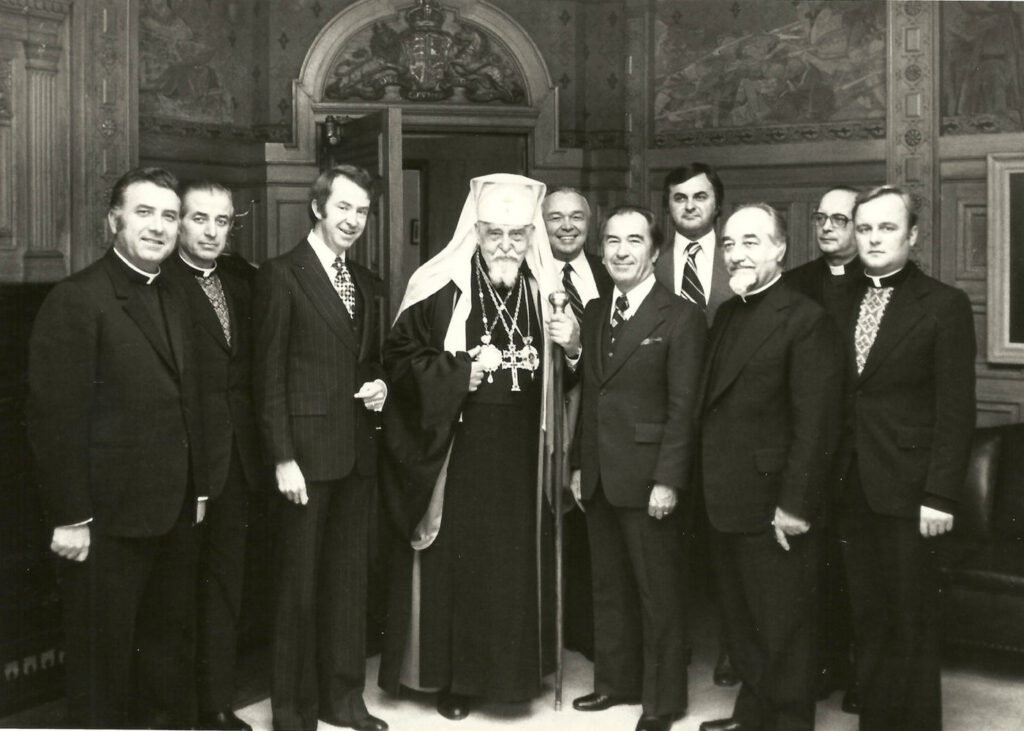 With Patriarch Slipyj, Hon. Joe Clark, parliamentarians and clergy, 1976
With Patriarch Slipyj, Hon. Joe Clark, parliamentarians and clergy, 1976In Ottawa, where Paul lived, he was a financial founder and key player in the building of St. John the Baptist Ukrainian Catholic National Shrine. In North Port, Florida, where he owned a home, he was instrumental in building the first ecumenical centre for Ukrainian Catholics and Orthodox, in 1975, called St. Andrew’s Ukrainian Religious and Cultural Centre. The community recognized Paul’s efforts by naming the Library at the Centre after him and dedicated a stained glass window in his memory. Paul also sought to build bridges between Ukrainians and Jews working closely with the Canadian Jewish Congress, B’nai B’rith and the Canadian Council of Christians and Jews on matters of mutual interest.
Paul was a prolific writer, author and speaker on Ukrainian Canadians and their contributions to Canada. He took great pride in promoting the achievements of Ukrainians in all fields. During his lifetime, he was a central figure at significant Ukrainian events in Canada such as the unveiling of monuments and sculptures, celebrations of Ukrainian Settlement in Canada, Ukrainian festivals and cultural events, Ukrainian Independence Day, Ukrainian Famine commemorations, book launches and the establishment of Ukrainian Studies at several Canadian universities. He met many prominent Ukrainian leaders and performers. As a community leader and Senator, Paul was a strong voice for Ukrainian interests on multiculturalism, Ukrainian independence and human rights in Canada and abroad.
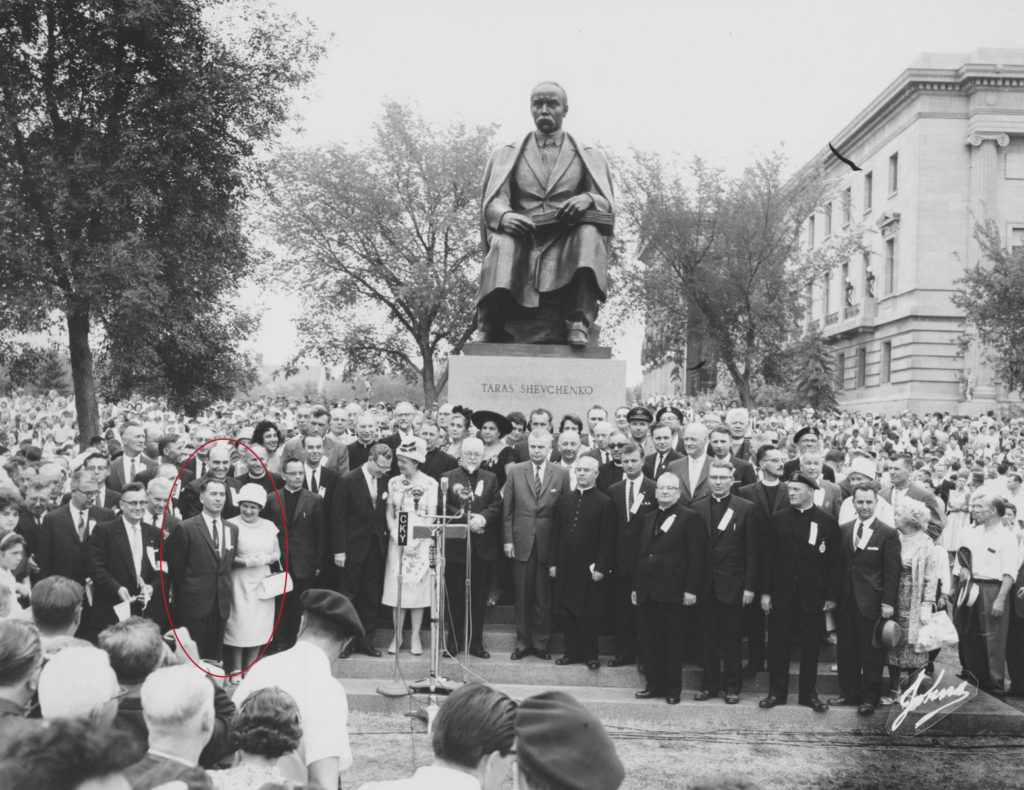
Winnipeg, 1961
See Paul’s article on the Unveiling Ceremony
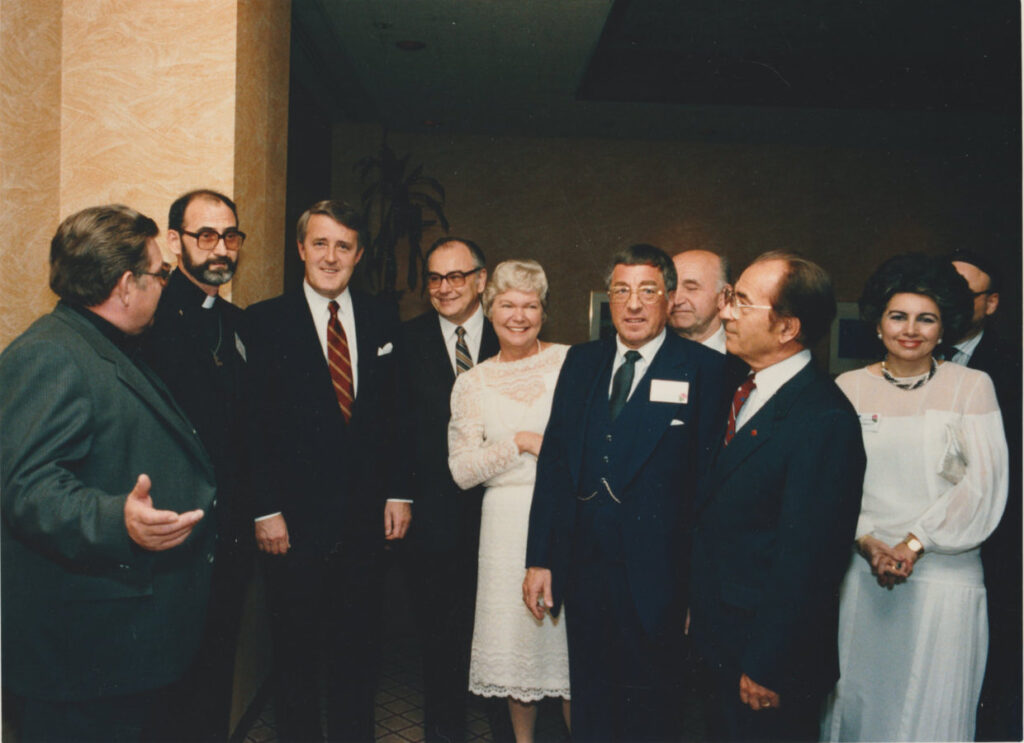
Recognition
Awards/Certificates (selected): Recognition for outstanding leadership, service and invaluable contribution to Canada’s National Ukrainian Festival, Dauphin, MB (1973); Award of Merit for outstanding achievement and dedicated service to the Ukrainian Community in Canada, UCC Ottawa branch (1976); Award of Gratitude for outstanding efforts afforded to St. Andrew’s Ukrainian Religious and Cultural Centre and devoted years to the Ukrainian cause (1982); Ukrainian of the Year Award, Ukrainian graduates of Detroit and Windsor (1979); Distinguished Service Award, UCPBA, Winnipeg, MB (1983); Founders (with wife Mary) for outstanding assistance in the building of the Ukrainian Catholic National Shrine in Ottawa (1986);
Medals: The Shevchenko Gold Medal (1968), Ukrainian Canadian Committee (Toronto) Gold Medal (1973);
Window: Stained Glass Window, St. Andrew’s Religious Cultural Centre, North Port, Florida (1975);
Posthumous recognition:
Leadership: Paul Yuzyk Institute for Youth Leadership in created by the Ukrainian National Federation (UNF) and the Ukrainian National Youth Federation (UNYF), Toronto (2009); Stamp: Ukrainian Collectibles Society of Toronto, a chapter of the Ukrainian Philatelic and Numismatic Society, a Canada Post Picture Postage Permanent Stamp 2013), honouring the late Senator Paul Yuzyk, 1913-86 Canada: a Multicultural Nation as Father of Multiculturalism.
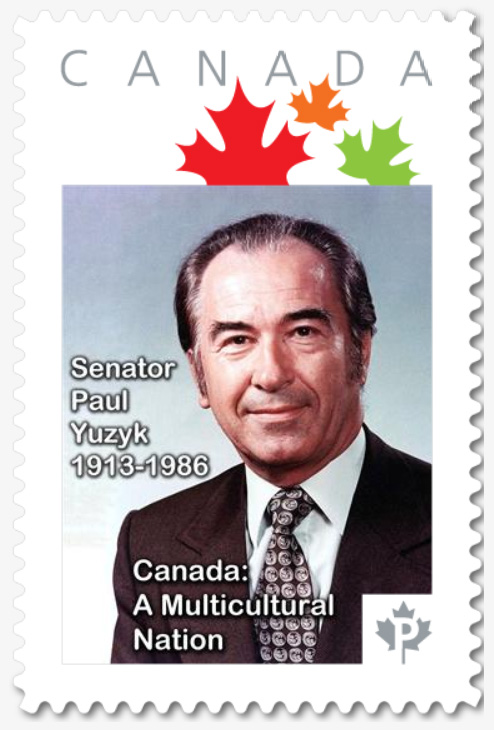
For more information on Paul Yuzyk, visit his extensive collection of papers located at Library and Archives Canada in Ottawa called the Paul Yuzyk Papers (MG 32, C-67), Finding Aid #1592. It consists of 139 volumes of correspondence, publications and other printed materials associated with his family, education, organizational, academic and Senate life.
Biography written by Vera Yuzyk, M.A (History)

